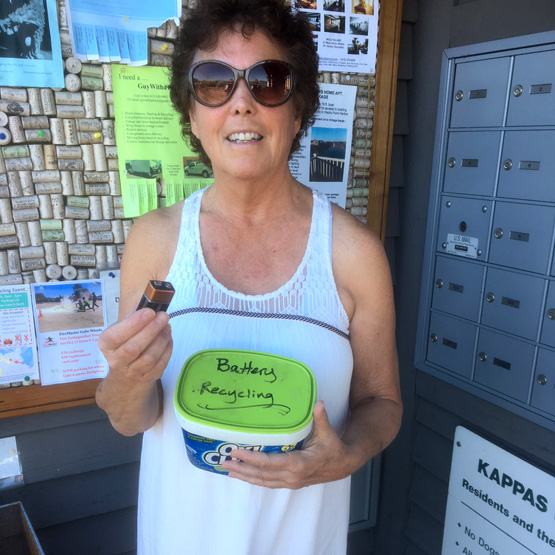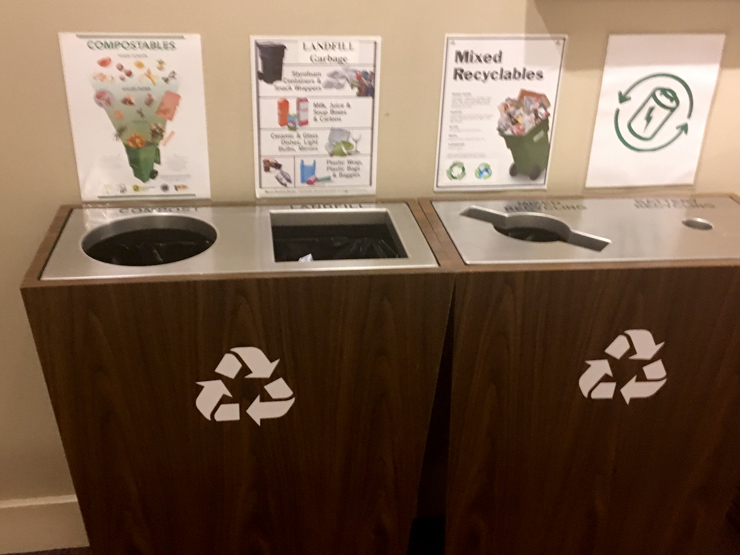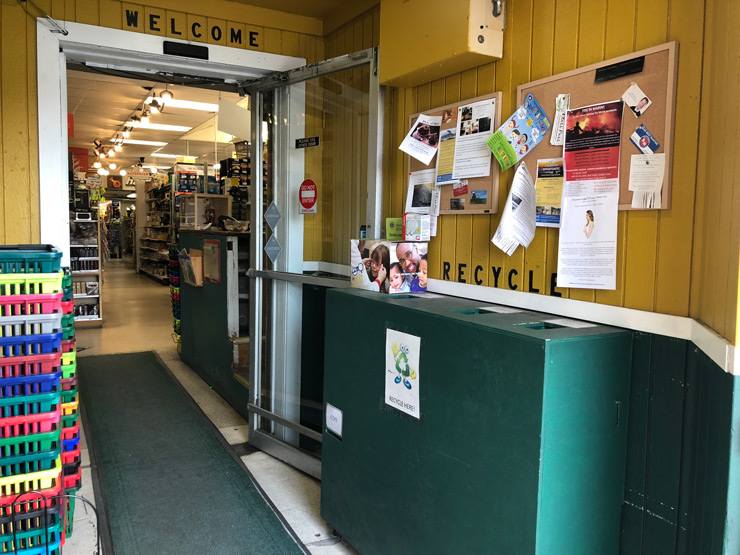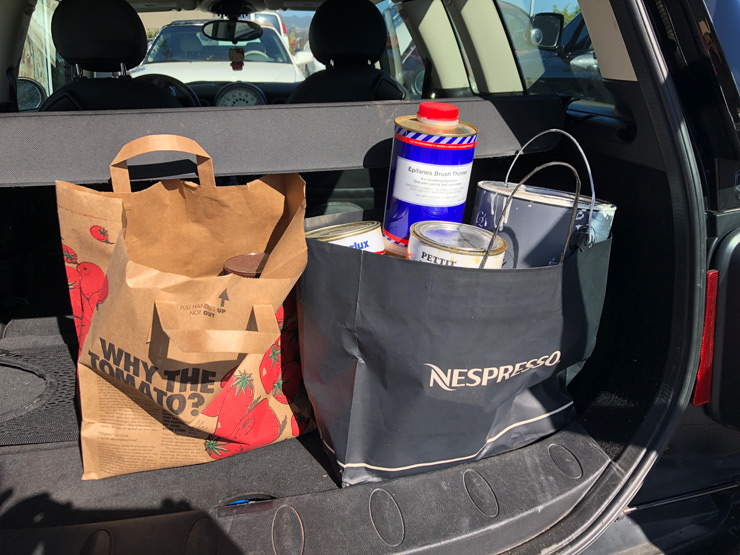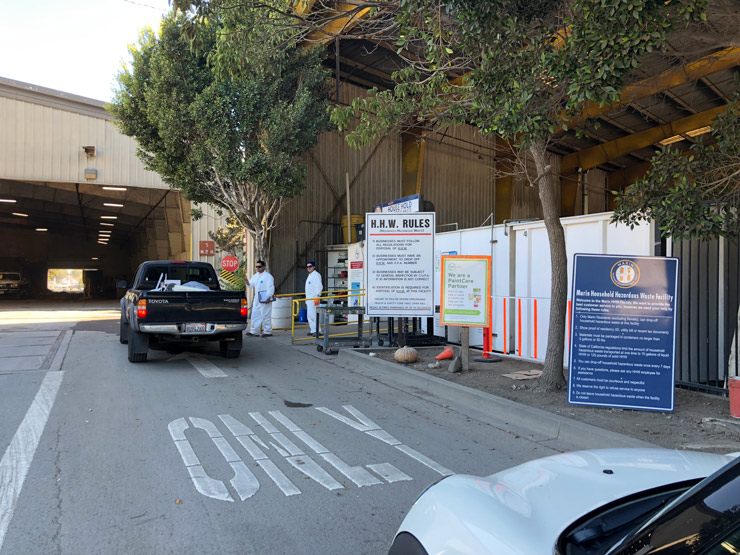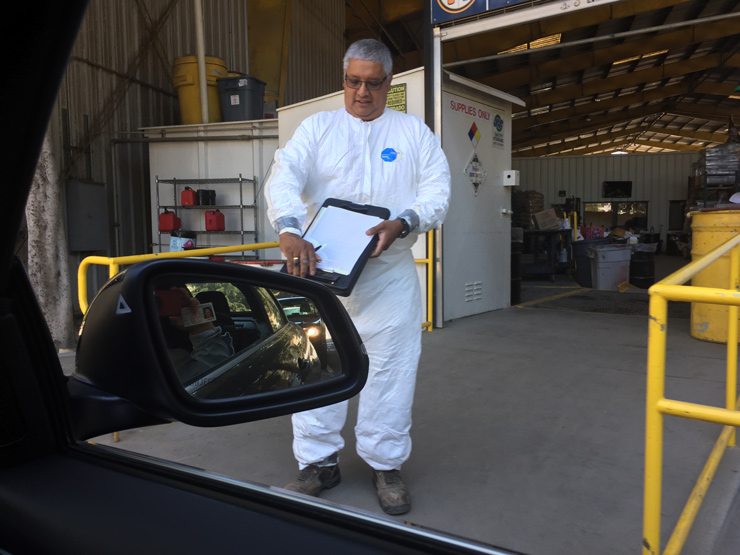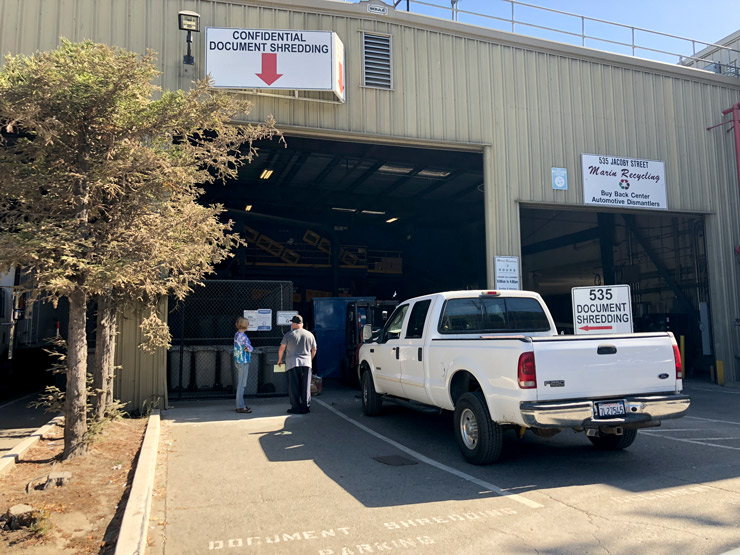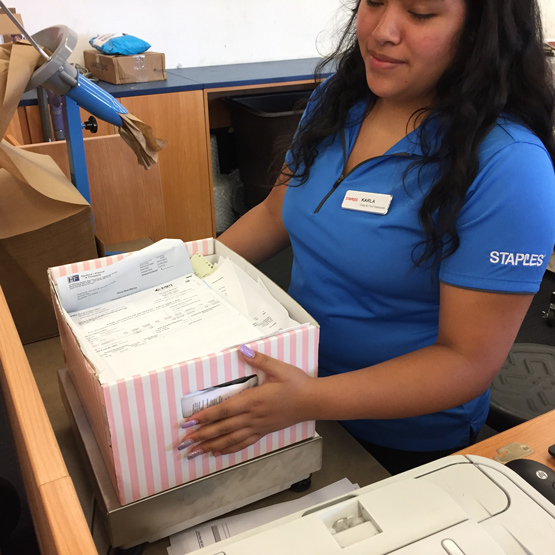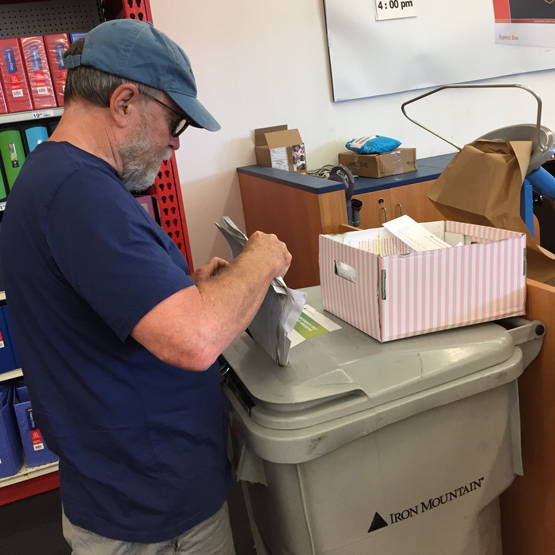Recycling paper, plastics, glass and metal is more or less straightforward. But what about the next level of recycling: batteries, light bulbs, left-over paint and solvent, and appliances? These ordinary household items are classified as hazardous waste, by virtue of the chemicals or metals or materials they contain. Keeping these items out of our landfill is essential if we hope to achieve zero waste.
One tactic for disposing of these items is to make their disposal part of our daily lives. On your way to Best Buy to replace a broken electronic item? Take the old item with you and dispose of your e-waste as you enter the store. Heading to Goodman’s? Notice they have a convenient collection point (to the right as you enter the store) for batteries, CDs, gift cards (!) and eyeglasses. Same for the library. Helen Vandeman (Gate 6 1/2) set up a battery collection box for her pier; someone on each dock could volunteer to do the same.
The best place to drop off any number of odd items is the Marin Household Hazardous Waste Facility in San Rafael. Free to Marin County residents (bring some form of ID, which can be as simple as a utility bill), the facility is located at 565 Jacoby Street. They accept residential drop-offs from Tues-Sat, 8 a.m. – 3:30 p.m.—read up on what’s required before you go. You’ll need a car, or join forces with a neighbor. The list of items they accept is too lengthy to post, but peruse the list here. Given the number of things they accept—including sharps—it’s an invaluable resource and well worth the effort.
The first visit can be intimidating as the place is HUGE and you’ll be in the company of builders with large trucks filled with construction debris to recycle. Scoot past the line of builders and pull around to the far right (see slide show above for a visual). You’ll be greeted by a very friendly crew, outfitted in hazmat-style white suits with clipboards (not to worry) who will ask what you’re bringing and who will then unload your vehicle. In the meantime you’ll fill out a form (address, what you’re bringing and a signature) and you’ll be on your way.
Need to shred sensitive or confidential documents? Several options exist for safe disposal:
- Also at Jacoby Street, on the left as you drive in, is the shredding hub. I don’t believe there is a charge.
- Or for 99¢ per pound, Staples will take your documents. Once they’ve weighed the paper you wish to shred, and you’ve paid, you then feed the documents into a secure container. The shredding takes place offsite by Iron Mountain and is guaranteed secure.
- For a slightly higher fee—$1.49 per lb—but the convenience of being nearby, you can walk your shredding needs over to The UPS Store at 3001 Bridgeway.
Either way, when you do the math on how much a home shredder costs and then factor in the need to store the shredder, you might find (as I did) that foregoing the machine turned out to be a smarter choice.
Finally, a good reference to figure out WHO TAKES WHAT is the FHA environmental page (Greencycling/Composting and Recycling Tips). While most of the info is still current, it’s likely more options are available (than when Blaise Simpson first created this page some 5 years ago.) If you have information to add (think local, as in within a 5 mile radius—ideally) please email Jenny Stein. We’re looking to update this page.
